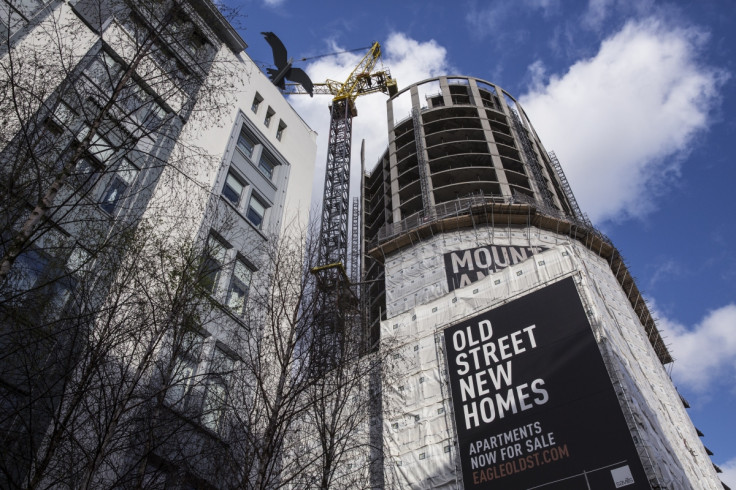Help to Buy scheme for London set for launch amid city's house price surge

A London-specific version of the government's Help to Buy scheme will launch on February 1 in a bid to give the city's struggling would-be homebuyers a foot up onto the housing ladder. House prices in London have risen sharply in recent years because of a serious supply shortage and a deluge of demand.
The ONS said the average London house price rose 9.8% to £537,000 over the year to November 2015. For the whole UK, the average was £288,000 after rising 7.7%.
Under the normal Help to Buy scheme, launched in 2013, the government offers an interest-free equity loan worth up to 20% of a property's value. The home must be a new build and worth £600,000 or less. It is open to all homebuyers, not just first-time buyers, but they must have at least a 5% deposit. After five years, if the equity loan has not been fully repaid, interest will be added to the repayments, starting at 1.75% and rising every year by RPI inflation plus 1%.
Because house prices in London are so far ahead of elsewhere in the country, Chancellor George Osborne announced in his 2015 autumn statement that he would increase the size of the government equity loan to 40% of the property's value for purchases in Greater London. This means London buyers using Help to Buy's equity loan will need a deposit worth at least 5%, and a mortgage equivalent to 55% of the property price.
A number of mortgage lenders are already participating in Help to Buy, which also offers a lending guarantee from the government, a shared ownership option and an ISA with deposit savings topped-up by public money. They have created new London-focused products after Osborne's extension. "If you're a first-time buyer in London, you've got two problems," said Lloyd Cochrane, head of mortgages at NatWest and RBS, which offer Help to Buy mortgages, to IBTimes UK. "One is raising a deposit. The other one is being able to afford the size of the mortgage that you've got to pay once you've raised that deposit. So this does address for the eligible customers both things."
Some have expressed concern that Help to Buy will fuel demand in London, driving up prices even further and putting more strain on the inadequate housing supply. House building in the city is running at around half the level needed to meet demand. But the existing Help to Buy equity scheme supported just 62,569 home purchases in the 30 months to September 2015, most of which were outside of London and only accounting for a fraction of the total market. Moreover, the Bank of England has imposed strict mortgage rules on lenders to curb risky behaviour. Only 15% of a lender's total mortgage stock can comprise loans worth more than 4.5 times the borrower's income. The vast majority of the mortgage lending, 85%, must be loans under 4.5 times income.
"That measure is an effective restriction on lending. It's doing what the Bank of England intended it to do," Cochrane said. "We haven't taken a decision to restrict our lending under this scheme. If we were to see a really fast tick-up, or anything that worried us from the extension of this scheme, because we've been in it for a couple of years since it was launched, then we would consider that. But it's not something that we're concerned about in terms of participating."
Zoopla, a property listings site, says its average London property price is £637,298. Lawrence Hall of Zoopla said the £600,000 upper limit for houses bought using Help to Buy means "buyers will have to look hard for an affordable London home".
"Steep property prices aside, those signing up to the scheme will also need to consider the mortgage costs that come with it," said Hall. "Whilst the three mortgage lenders who have already published London Help to Buy rates are softening the blow by offering competitive rates, at the very top end of the scheme buyers would need to find a £30,000 deposit.
"Zoopla calculations show that to make the most of the top price bracket property (£600k), a buyer would need to be earning a substantial £73,000 a year, more than double the average London salary of around £35,000, to qualify for the mortgage of £330k, even with the government lending you 40%. For a lower purchase price of £350k, buyers would still need a higher than average salary of £43,000 for a mortgage of £192,500. While the scheme extension is a move in the right direction, one has to question whether it's benefitting London's higher earners, rather than those who need it most."
Capital Economics said in a note that, when you take into account Londoners' incomes and the city's high house prices, "on balance, compared to the original scheme, we believe that London Help to Buy will open relatively few doors".
© Copyright IBTimes 2025. All rights reserved.






















